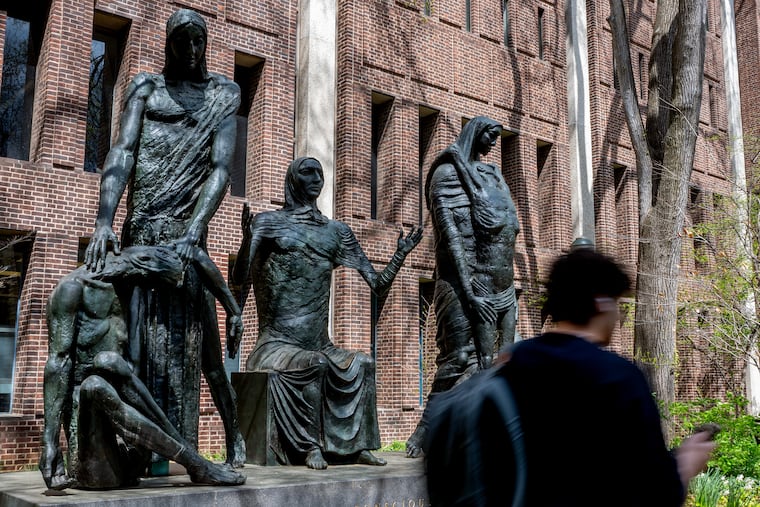There has never been an easy time to run a program in the humanities. That’s because they offer the kind of majors that make people roll their eyes and ask, “So what job can you get with a degree like that?” Humanities programs tend to be small, and — even at elite institutions like the University of Pennsylvania — they often run on shoestring budgets.
But in 2025, running a program in the humanities has become even harder. I know, because I lead Penn’s Gender, Sexuality, and Women’s Studies Program. Funding for humanities scholarship of all sorts is drying up, and central topics like diversity, equity, and inclusion (DEI) have become political playthings that decimate their intellectual value. While politicians try to score points, real students are being harmed.
We’re in a moment of extreme politicization for higher ed, but politicization harms some parts of the academy more than others. Projects central to the humanities — like Africana, Asian American, Latinx, and gender studies — are losing their footing as federal and state funders undermine the priorities of long-standing academic traditions.
This leads to a decrease in budgets, faculty lines, and research grants necessary to keep a program afloat. We’ve heard much about cuts to the National Institutes of Health and the National Science Foundation, which have been devastating to scientific process and experimentation, but cuts at the National Endowment for the Humanities and the Institute of Museum and Library Services are equally disastrous.
While humanities scholarship has always needed justification in a climate prioritizing STEM fields and vocational training, now we are also tasked with supporting students who are being negatively impacted by aggressive and divisive rhetoric alongside ever-changing policies.
Being in the humanities today often puts its faculty and students at risk. For instance, faculty in gender studies regularly face threats or harassment for their teaching and research, creating an environment of fear and self-censorship.
I have received death threats for saying apparently provocative things in public, like, “Trans people are people, and they deserve medical care.” The courses I teach could not be offered in a growing number of states. While the push to define sex narrowly and restrict discussions around gender identity and sexual orientation challenges the foundational principles of gender studies, it underscores the broader attempt to censor ideas.
Topics related to DEI, Palestine, and trans rights feel increasingly off-limits, less because of the rules that exist right now than because of the rules we’re anticipating. Such restrictions — antithetical to a democracy committed to free speech and open inquiry — pressure faculty across the university to toe the line in order to keep their projects and labs running and students supported.
There’s a cost to undermining the humanities. Think about what they’ve always cultivated: the critical thinking, analytical skills, writing, empathy, flexibility, curiosity, problem-solving, ethical reasoning, and nuanced understanding of social dynamics that give students a way to exist in the world.
The humanities offer a space for serious inquiry about tough problems, grounded in everyday life, and a tool kit for seeing inequalities of power and doing something about them. Losing that focus risks the very purpose of a university: to foster open inquiry, understand the world we have, and envision how it could be better. Campus is a more relevant, innovative, vibrant, and intellectually challenging place because of what we do.
Topics related to DEI, Palestine, and trans rights feel increasingly off-limits.
Every semester, I start my classes by asking students, “Why are you in college?”
Students talk about wanting to find jobs, to please their parents and families, and (if I’m lucky) to understand how the world works. I tell them my classes are about that third category. My lectures aren’t really meant to help them find jobs or please their parents. When I teach, I’m trying to make people better citizens of a complex world.
So, how are we to sustain the humanities? Academics need to do a better job of communicating what we do and why it matters. We must connect the skills we develop in humanities classrooms to diverse careers, while stressing how they foster the adaptability, creativity, and interdisciplinary thinking needed for well-rounded people. Building a university that our students deserve requires a commitment to the humanities, but it’s clear this commitment has to be fought for.
Consider this a call from the front lines: Undermining the humanities isn’t just about defunding programs. It’s about dismantling the very tools that equip us to think critically, challenge assumptions, and build a more just world.
Jessa Lingel is an associate professor and director of the Gender, Sexuality, and Women’s Studies Program at the University of Pennsylvania.
